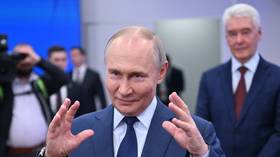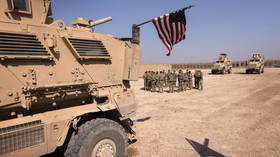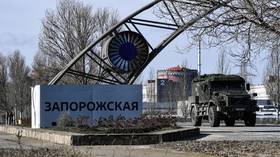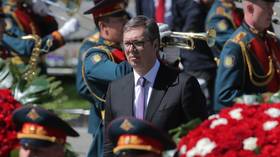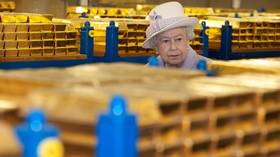Hong Kong plunges into recession as months of violent protests take toll on economy
Months of chaos have hurt Hong Kong’s economy, which has now slid into recession, according to region’s financial secretary, Paul Chan Mo-po.
Financial data set to be released by the government on Thursday shows that Hong Kong’s economy faced two successive quarters of contraction, which is the technical definition of a recession, the official said in a blog post on Sunday.
“The blow to our economy is comprehensive,” the statement added.
Also on rt.com Hong Kong’s days as global financial hub may be numbered – Jim RogersMoreover, Hong Kong may fail to post full-year growth in its gross domestic product (GDP), and could even face its first annual economic contraction since 2009, the financial secretary warned. Back in 2009, the former British colony’s GDP fell around 2.7 percent compared to the previous year in the wake of the global financial crisis.
“It seems it will be extremely difficult for us to reach full-year economic growth of zero to one percent. I would not rule out the possibility that the full-year economic growth will be negative.”
Massive rallies, sparked by a withdrawn extradition bill, have been raging in China’s self-governing territory for five months and show no sign of relenting. The city saw multiple chaotic scenes on Sunday, with violent mobs blocking roads, setting shops on fire, and hurling petrol bombs. Police deployed tear gas and water cannon to disperse the crowd.
The unrest took a toll on local businesses and banks, as demonstrators mainly tried to attack entities linked to mainland China. The tourism sector has been one of the worst affected, as visitor arrivals tumbled almost 50 percent in the first two weeks of October following a combined 39 percent drop in August and September.
The dual effect of the US-China trade war and civil unrest sank Hong Kong’s exports, which were down seven percent in September compared to the same period last year. Imports, meanwhile, fell by more than 10 percent.
Notably, Hong Kong is an internationally recognized financial hub, which attracts massive foreign investment. The ongoing unrest is likely to turn investors away, however.
Hong Kong Financial Secretary Paul Chan Mo-po called on various sectors to unite, stop damaging the city’s infrastructure and hurting “people with different political views.”
“We must reject the concept of ‘burning together,’ so that order can be restored in society as soon as possible,” he wrote, referring to a popular protest slogan. “If you really love Hong Kong, our home, please set aside differences.”
For more stories on economy & finance visit RT's business section



